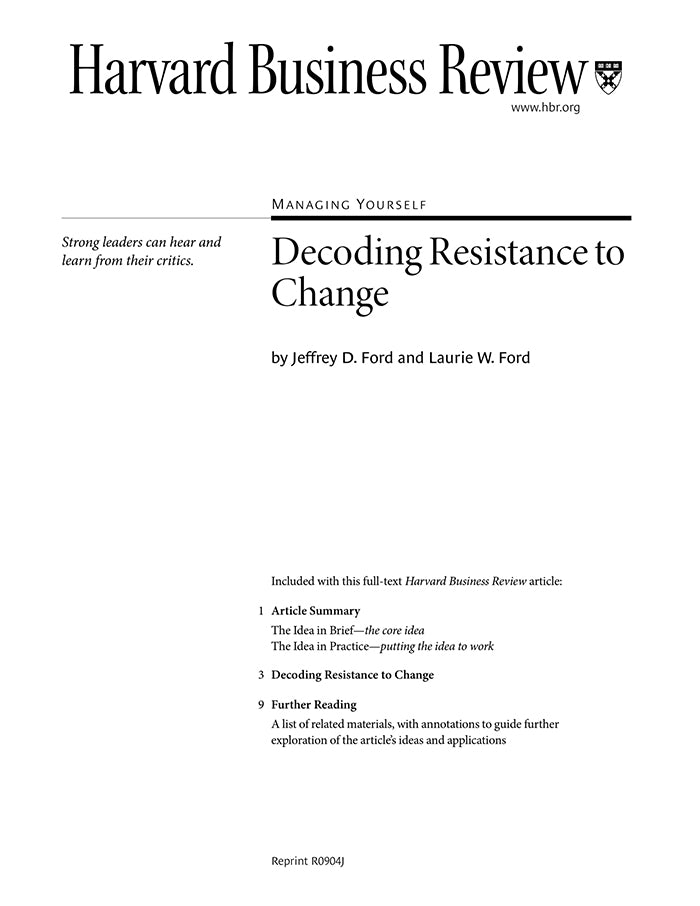Decoding Resistance to Change
受取状況を読み込めませんでした
This article includes a one-page preview that quickly summarizes the key ideas and provides an overview of how the concepts work in practice along with suggestions for further reading. When a change initiative falters, the knee-jerk response can be to blame those who won't get on board. Jeffrey Ford, of the Ohio State University, and Laurie Ford, of Critical Path Consultants, examine why that type of reaction is not only pointless but potentially destructive. Drawing on their years of research and consulting work, the authors recommend seeing resistance for what it really is - feedback - and propose five ways for leaders to use that feedback to effect change more productively. Boost awareness. In the early stages, if the only way to keep the conversation about change alive is to entertain highly charged discussions, so be it. A complete lack of feedback can sound the death knell for change. Return to purpose. Employees need to know not only what will change but why the new reality will be better. Don't be shy about offering explanations as directly as possible. Change the change. People who resist change are often the ones most concerned about getting things right. Give them the chance to help you make a good change initiative better. Build participation and engagement. Heed feedback even when it doesn't seem likely to yield objective improvements. The ownership people feel when you adopt their best ideas will pay off in ways you often cannot foresee. Complete the past. A legacy of bad change can inhibit your change effort, even if you had nothing to do with the unfortunate history. Acknowledging - and, if possible, correcting - past change failures is often essential to future success.
【書誌情報】
ページ数:12ページ
サイズ:A4
商品番号:HBSP-R0904J
発行日:2009/4/1
登録日:2012/3/28


